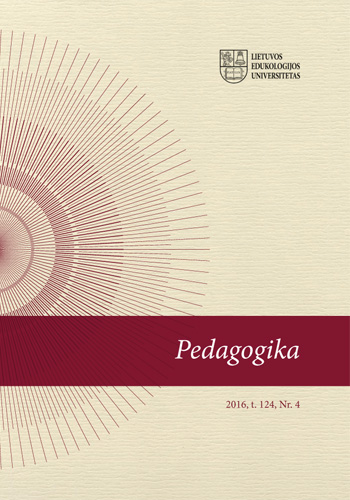Bronislovas Bitinas – ryškiausias XX a. antrosios pusės – XXI a. pradžios postpozityvizmo atstovas Lietuvos edukologijoje
Bronislovas Bitinas: the Most Illustrious Representative of Post-positivism in Lithuanian Educational Sciences in the Last Half of the 20th and the Beginning of the 21st Centuries
Author(s): Liudmila RupšieneSubject(s): Philosophy, Education, Methodology and research technology
Published by: Vytauto Didžiojo Universitetas
Keywords: research methodology; postpositivism; positivism; education science;
Summary/Abstract: Bronislovas Bitinas is well known in education sciences for his extensive work on methodology. However, none of his publications explicitly state which philosophy guides his approach to research. Scholars have argued that research methodology is dependent on the underlying philosophical assumptions; therefore, to understand the originality and contributions of specific methodology, philosophical principles guiding methodological decisions need to be examined. Given the importance of philosophy as a foundation for methodology, in this article I explore philosophical assumptions underlying B. Bitinas’ conceptualizations of educational research, as represented in his publications on methodology and in his overall scientific contributions. After a brief overview of Bitinas’ work, I outline the principles of post-positivism as a contemporary, improved, and “less arrogant” form of positivism. Examining how post-positivist principles are manifested in Bitinas’ ideas on methodology leads me to conclude that B. Bitinas is an educational researcher, whose systematic conceptualizations of methodology are congruent with the postpositivistic philosophical stance. Moreover, given the influence of his voluminous publications, Bitinas can be considered as the most illustrious educational researcher, who, in the latter half of the 20th and the beginning of the 21st century, has systematically expanded research methodology for education sciences.
Journal: Pedagogika
- Issue Year: 124/2016
- Issue No: 4
- Page Range: 28-46
- Page Count: 19
- Language: Lithuanian

